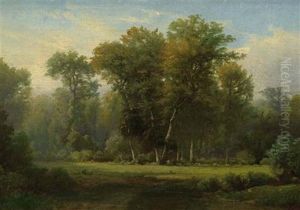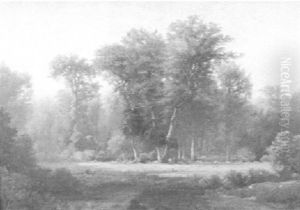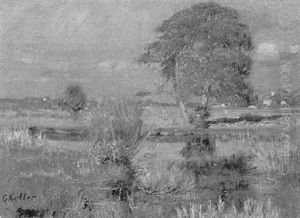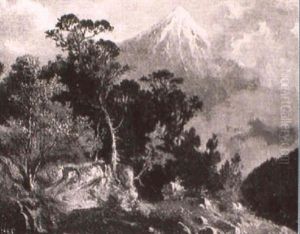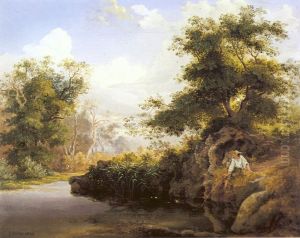Gottfried Keller Paintings
Gottfried Keller was a Swiss poet and writer of German literature. Born on July 19, 1819, in Zürich, Switzerland, Keller became one of the most celebrated figures in Swiss literature. His childhood was marked by the death of his father when Keller was just five years old, which left the family in financial difficulties. Despite these challenges, Keller's mother recognized her son's talents and managed to provide him with a good education.
Keller's early career aspirations were to become a painter, and in pursuit of this goal, he spent time in Munich attempting to hone his craft. However, he eventually acknowledged that his talents lay not in visual arts but in literature. Returning to Zürich, he began to write poetry and prose. Keller's literary work was influenced by his keen interest in the social and political developments of his time, and he often explored themes of personal freedom and the relationship between the individual and society.
His most famous work is 'Der grüne Heinrich' (Green Henry), which is a semi-autobiographical novel first published in its first version between 1854 and 1855. The novel underwent a thorough revision for a second edition which was released in 1879-1880. The story follows the life of Heinrich Lee, detailing his childhood, artistic aspirations, moral development, and eventual maturity. The book is noted for its keen exploration of the artist's role in society and the conflicts between artistic idealism and the demands of the practical world.
Alongside his novels, Keller was known for his short stories and poems, with 'Die Leute von Seldwyla' (The People of Seldwyla), a collection of satirical short stories, being among his most beloved works. These stories reflect the idiosyncrasies of small-town life and offer a humorous critique of bourgeois values and behaviors.
As a figure of importance in the cultural life of Zürich, Keller also engaged in politics. He served as the State Secretary in the Cantonal government of Zürich from 1861 to 1876, a position which required him to put his literary pursuits on hold. His political and administrative work, however, provided him with a stable income and a platform to influence the cultural policies of his time.
Gottfried Keller never married and remained a bachelor throughout his life. His contributions to literature have been acknowledged by the naming of streets, schools, and other institutions after him in Switzerland. His works continue to be a critical part of German literary studies and are celebrated for their deep humanism and insight into the social fabric of the 19th century. Keller died on July 15, 1890, in his birthplace of Zürich, leaving behind a legacy that has firmly established him as one of the great literary figures of his nation.


